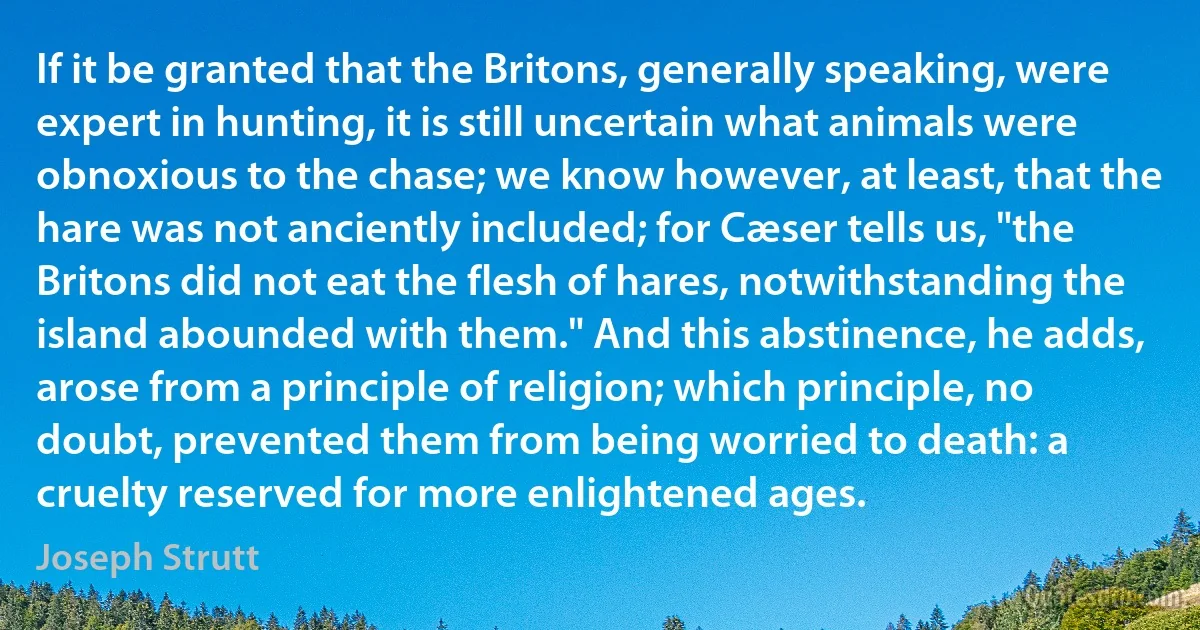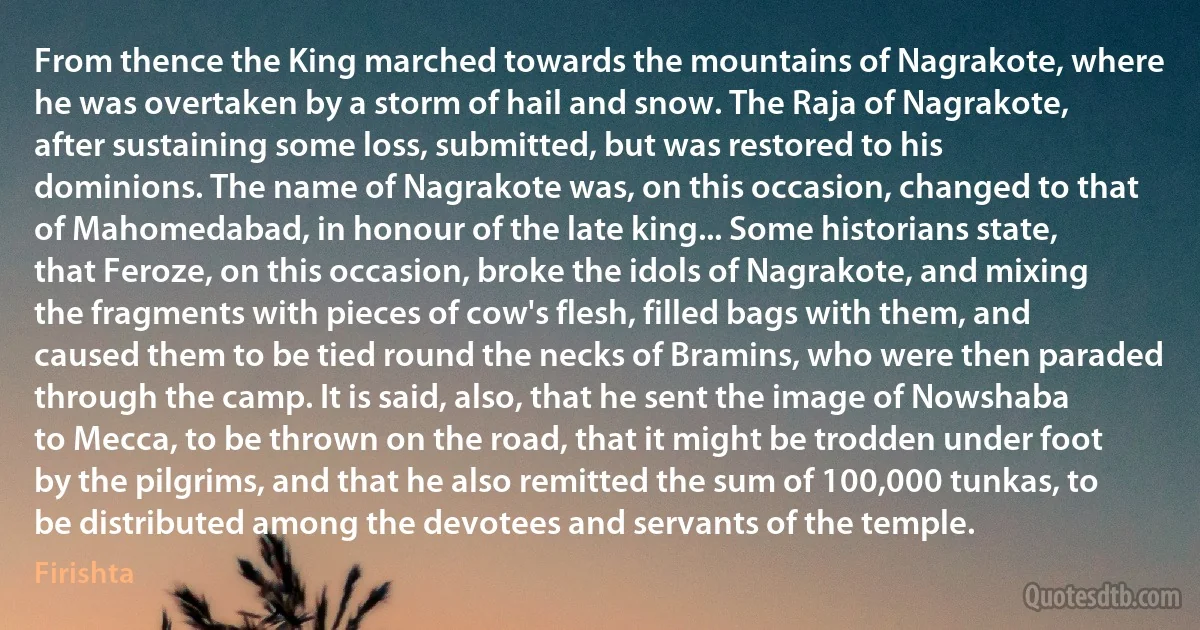Flesh Quotes - page 23
Fear of female flesh is fear of female power, and reclaiming women's bodies must go hand in hand with reclaiming women's power. This cannot be achieved simply by purchasing expensive body lotion. Men and women alike need to confront our fear of female flesh, to risk being overwhelmed by the power of women to change society and take charge of their own lives. All we need to do is acknowledge how hungry we are for that future to arrive, and take the first bite.

Laurie Penny
It can hardly be argued that the ubiquity of the Playboy Bunny logo or its popularity with young girls are positive developments, but it must be understood that what is being objected to here, as elsewhere, is not sex, but symbol: the black-and-white, liplesss, featureless symbol of a perky, prosthetic sexuality whose alienation from the flesh and intimacy of real sex can be mass-produced.

Laurie Penny
In the interpretation of figurative passages, let the following canon be observed. If the passage be preceptive, either forbidding some flagitious deed and some heinous crime, or commanding something useful and beneficent: then such passage is not figurative. But, if the passage seems, either to command some flagitious deed and some heinous crime, or to forbid something useful and beneficent: then such passage is figurative. Thus, for example, Christ says: Unless ye shall eat the flesh of the Son of man, and drink his blood; ye shall have no life in you. Now, in these words, he seems to command a heinous crime or a flagitious deed. Therefore the passage is a figure, enjoining us to communicate in the passion of our Lord, and admonishing us to lay it up sweetly and usefully in our memory because, for us, his flesh was crucified and wounded. On the other hand, Scripture says: If thy enemy shall hunger, give him food; if he shall thirst, give him drink.

George Stanley Faber
The Lord ... said: Unless a man shall eat my flesh, he shall not have in himself eternal life. Certain of his disciples, the seventy to wit, were scandalised, and said: This is a hard saying; who can understand it? And they departed from him, and walked with him no more. His saying ... seemed to them a hard one. They received it foolishly: they thought of it carnally. For they fancied, that the Lord was going to cut from his own body certain morsels and to give those morsels to them. Hence they said: This is a hard saying. But they themselves were hard: not the saying. For, if, instead of being hard, they had been mild, they would have ... learned from him what those learned, who remained while they departed. For, when the twelve disciples had remained with him after the others had departed, ... he instructed them, and said unto them: It is the spirit that quickeneth; the flesh profiteth nothing. The words, which I speak unto you, are spirit and life.

George Stanley Faber
Animals that are killed for their flesh lead miserable lives. They are kept in disgusting conditions. The simplest little thing you can do not to hurt animals is just not eat them. I'm bringing my four children up vegetarian, and I know absolutely that I'm giving them the very best start in life.

Sadie Frost
Stow informs us, that the young Londoners, on holidays, after the evening prayer, were permitted to exercise themselves with their wasters and bucklers before their masters' doors...The bear-gardens were the usual places appropriated by the masters of defence for public trials of skill. These exhibitions were outrageous to humanity, and only fitted for the amusement of ferocious minds; it is therefore astonishing that they should have been frequented by females; for, who could imagine that the slicing of the flesh from a man's cheek, the scarifying of his arms, or laying the calves of his legs upon his heels, were spectacles calculated to delight the fair sex, or sufficiently attractive to command their presence.

Joseph Strutt
The Logos, in truth, is the light of God, but the ignorant soul is darkness. On this account, if it continues solitary, it tends downward towards matter, and dies with the flesh; but, if it enters into union with the Divine Spirit, it is no longer helpless, but ascends to the regions whither the Spirit guides it: for the dwelling-place of the spirit is above, but the origin of the soul is from beneath. Now, in the beginning the spirit was a constant companion of the soul, but the spirit forsook it because it was not willing to follow.

Tatian
The time will come in the world's history, and a movement is setting in that direction even now, when it will be deemed as strange a thing to find a man or a woman who eats flesh as food, as it is now to find a man or a woman who refrains from eating it. And personally, I share the belief with many others, that the highest mental, physical, and spiritual excellence will come to a person only when, among other things, he refrains from a flesh and blood diet.

Ralph Waldo Trine
After looking carefully into the matter, and after some years' experience in its non-use, I can state without hesitancy that, contrary to the prevailing opinion, the flesh of animals is not necessary as an article of food. ... We shall find numerous articles of food, as we study the matter, that, so far as body nourishing, building, and sustaining qualities are concerned, contain twice, and in some cases over twice, as much as any flesh food that can be mentioned.

Ralph Waldo Trine
From thence the King marched towards the mountains of Nagrakote, where he was overtaken by a storm of hail and snow. The Raja of Nagrakote, after sustaining some loss, submitted, but was restored to his dominions. The name of Nagrakote was, on this occasion, changed to that of Mahomedabad, in honour of the late king. Some historians state, that Feroze, on this occasion, broke the idols of Nagrakote, and mixing the fragments with pieces of cows flesh, filled bags with them, and caused them to be tied round the necks of Bramins, who were then paraded through the camp. It is said, also, that he sent the image of Nowshaba to Mecca, to be thrown on the road, that it might be trodden under foot by the pilgrims, and that he also remitted the sum of 100,000 tunkas, to be distributed among the devotees and servants of the temple.

Firuz Shah Tughlaq
The one term I don't like to be called is a 'vulture.' Because to me, a vulture is a kind of asset-stripper that eats dead flesh off the bones of a dead creature. Our bird should be the phoenix, the bird that reinvents itself, recreates itself from its ashes. And that's much closer to what it is that we really do.

Wilbur Ross
We have to consider that the foods we ingest let a certain amount of soluble toxic substances dispersed in the environment into our bodies. These polluting substances are harmful if we breathe them in, but they are even more so if we ingest them. By consuming meat, we put ourselves precisely in that position, because such substances in the atmosphere fall back to Earth, and hence, onto the grass that, when eaten by cattle, introduces harmful substances into their adipose deposits and therefore into their flesh, and finally, onto our plates.

Umberto Veronesi
The votaries of Pythagoras of Samos have this story to tell of him, that he was not an Ionian at all, but that, once on a time in Troy, he had been Euphorbus, and that he had come to life after death, but had died as the songs of Homer relate. And they say that he declined to wear apparel made from dead animal products and, to guard his purity, abstained from all flesh diet, and from the offering of animals in sacrifice. For that he would not stain the altars with blood; nay, rather the honey-cake and frankincense and the hymn of praise, these they say were the offerings made to the Gods by this man, who realized that they welcome such tribute more than they do the hecatombs note and the knife laid upon the sacrificial basket.

Philostratus



